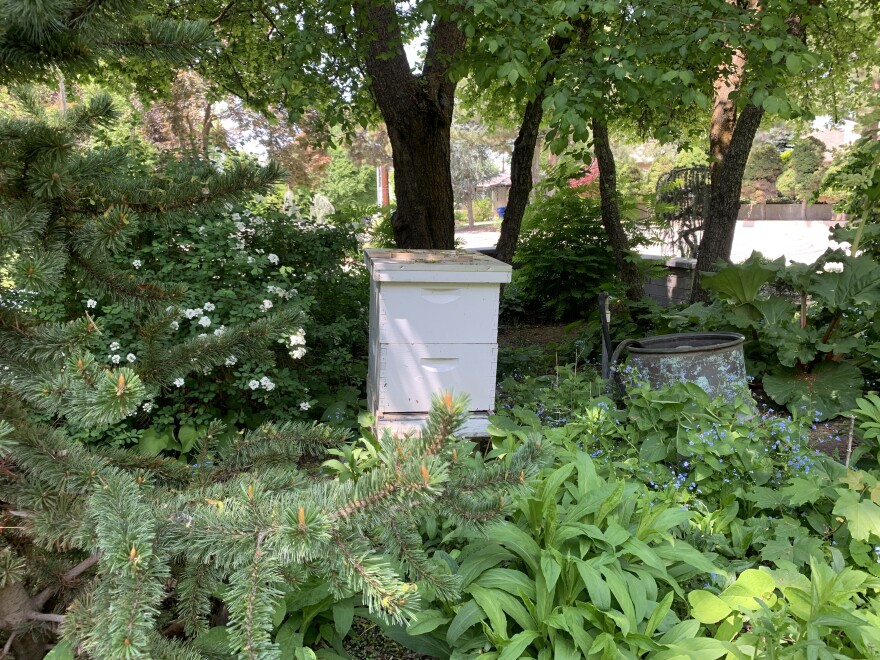There are about 10,000 bees in this hive. They’re multiplying every day. Pretty soon there will be over 50,000 of them, working to fill empty honeycombs with honey.
“Sometimes I get almost none,” says Kirk Johnson.
He’s a hobby beekeeper. He’s also my dad. His hive is in our front yard between a huge rhubarb plant and some big evergreen trees.
“The last two years I’ve got 300 pounds from one hive,” Johnson says.
He’s been a beekeeper for about eight years. He says during that time, he’s struggled to keep his bees alive season to season. He says Utah’s climate may be a factor.

“The one disadvantage I would see is the harsh winters which sometimes make it difficult for them to survive.”
A new report from Lawn Love, a lawn care company, says Utah is the 37th worst state for beekeeping in the nation. Since data was only available for 39 states, that makes Utah the third worst state they surveyed.
Lawn Love used data from the U.S. Bureau of Labor Statistics, the Department of Agriculture, and other agriculture organizations to rank states on total output, potential earnings for beekeepers, ability to distribute honey, and beekeeping support like beekeeping associations or bee-friendly legislation.
Despite being called the Beehive State, Utah ranked very low in earning potential and total honey output. Our best ranking came in beekeeping support, though we still only barely made the top 30 at number 29.
Lawn Love says you can be a bee-friendly neighbor by replacing grass with clover, planting native plants, and using organic pest control methods that don’t harm bees.
Johnson says, despite the poor ranking, it's worth keeping bees in Utah.

“I think overall it’s a pretty good place to keep bees. I think it’s a fascinating process by which they create honeycomb and honey, I think they’re interesting, and frankly, I enjoy sharing the honey with my friends and neighbors.”



